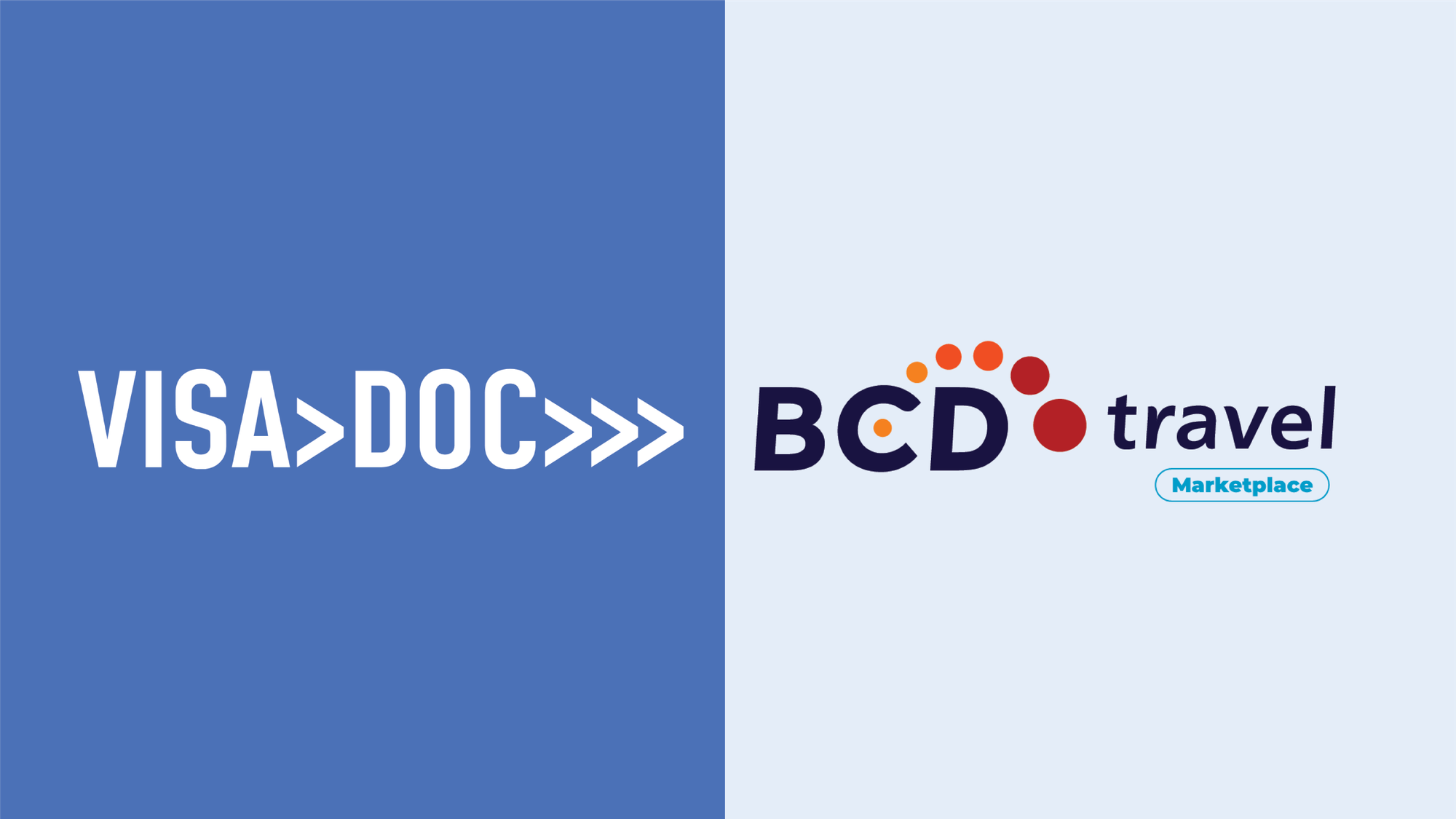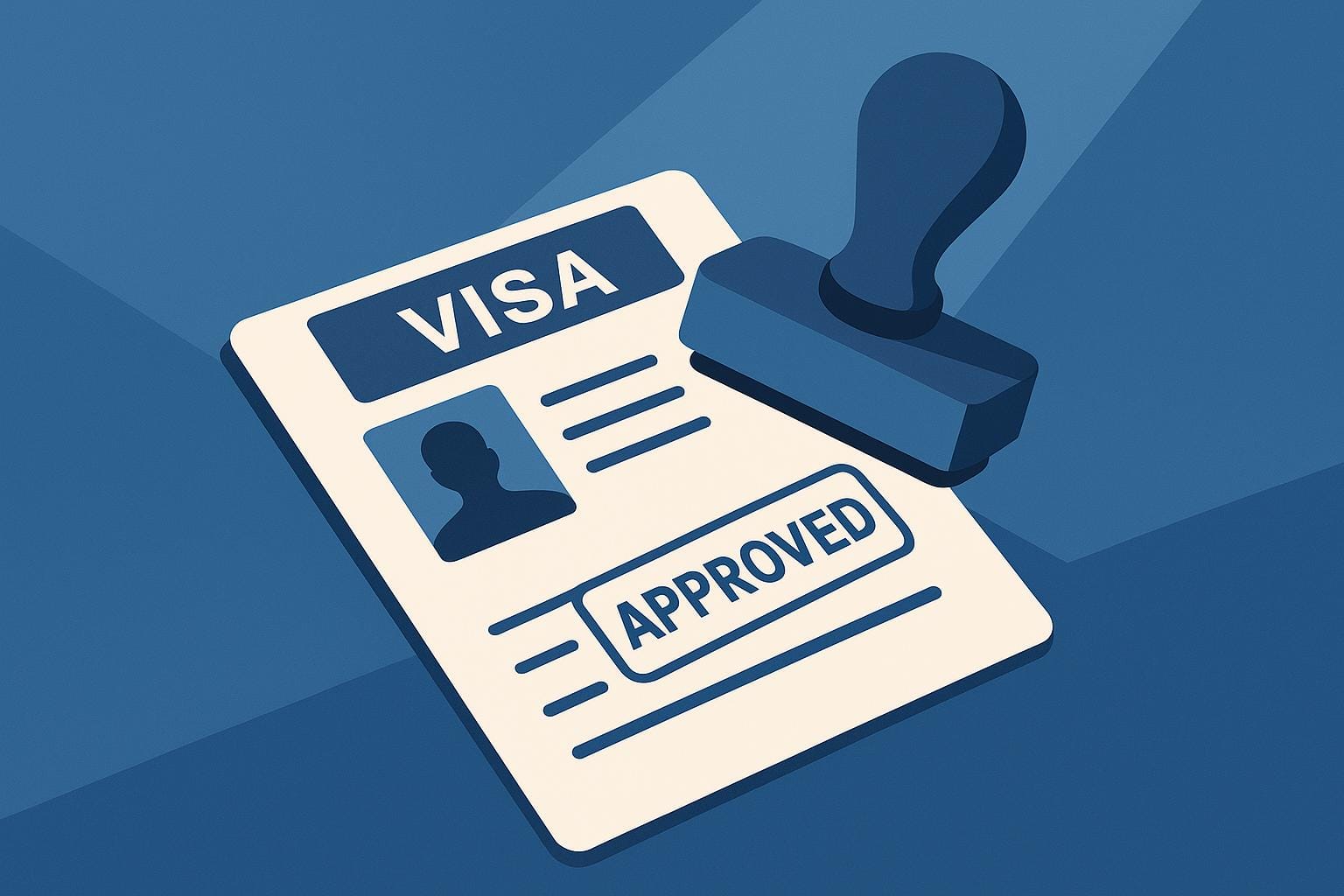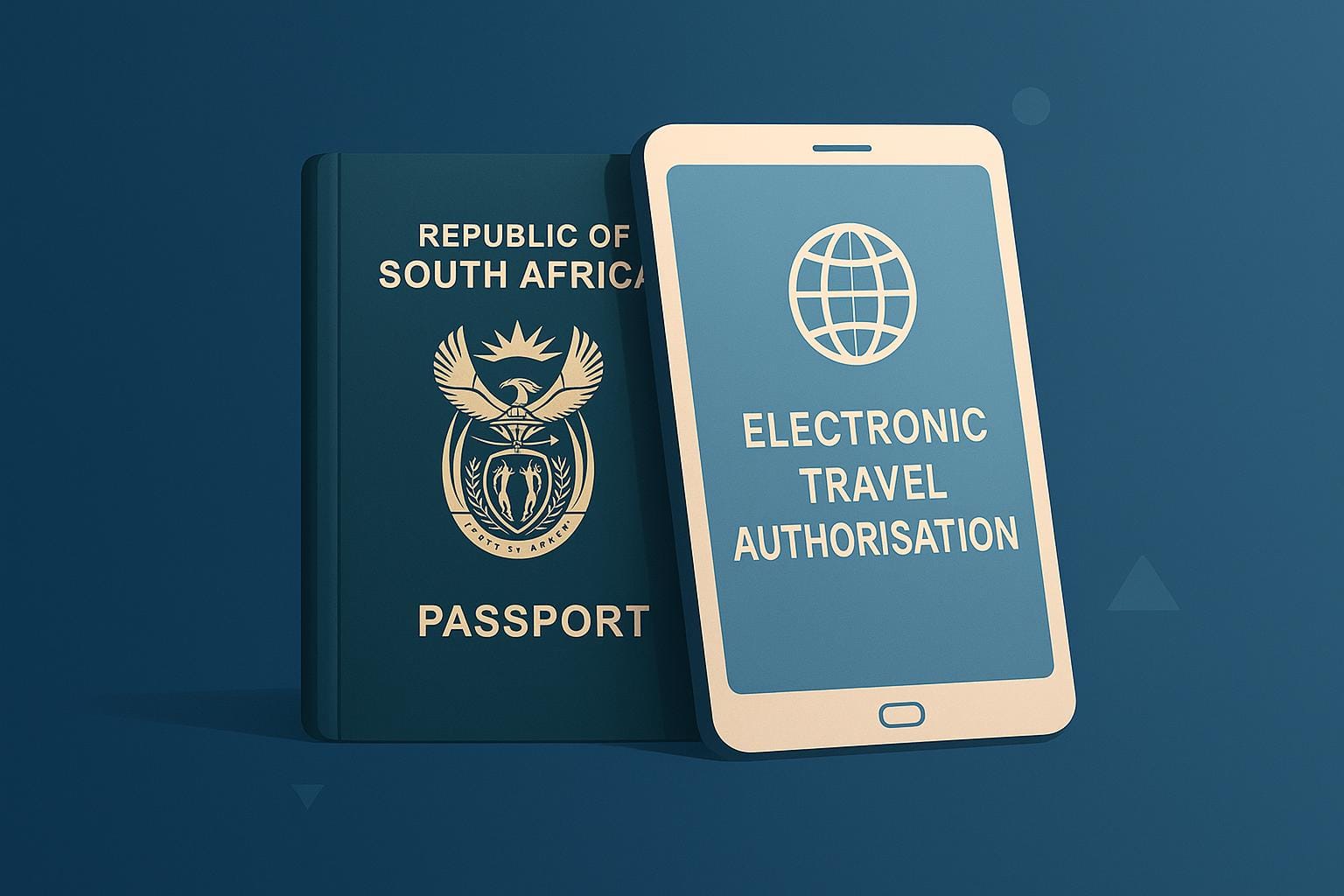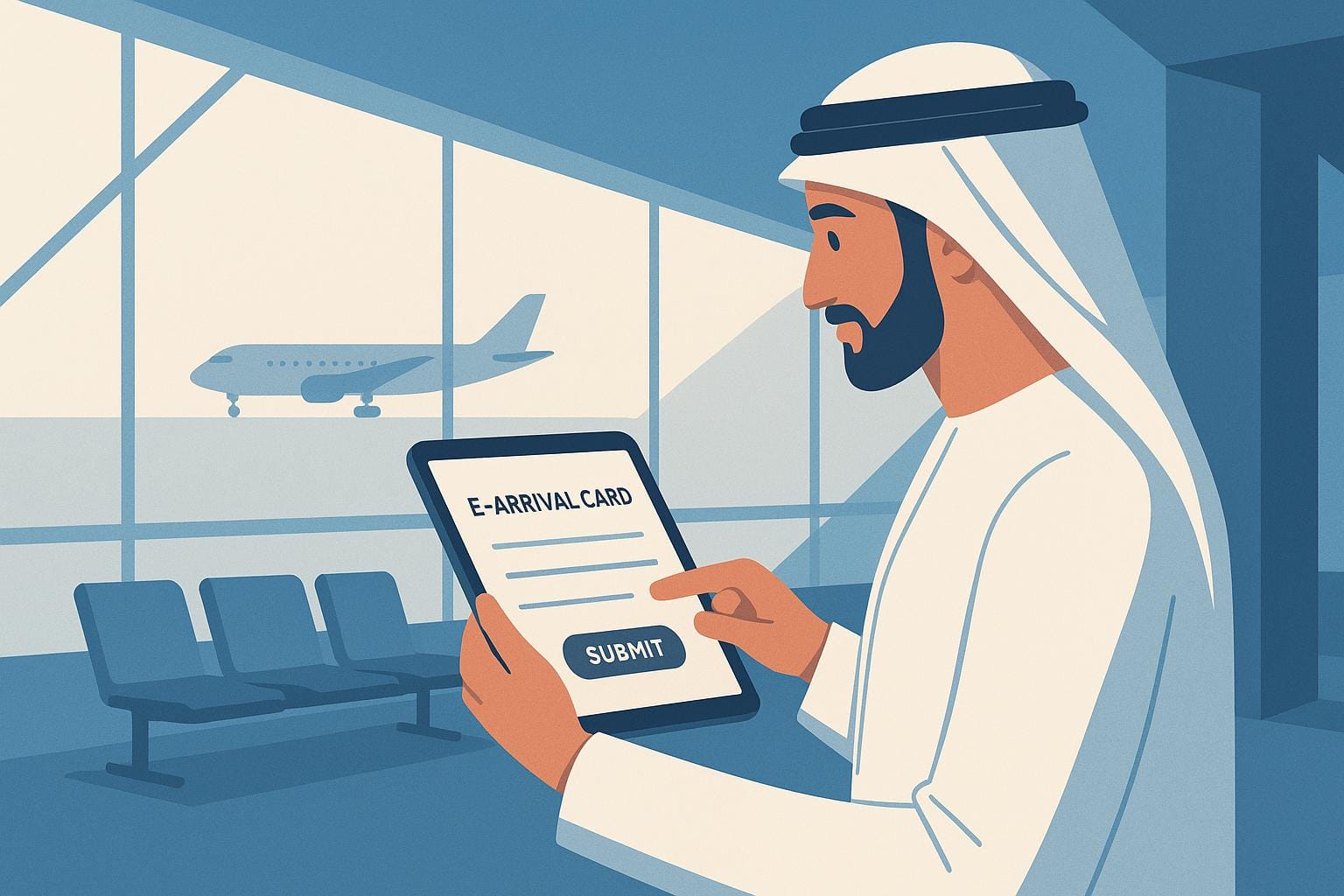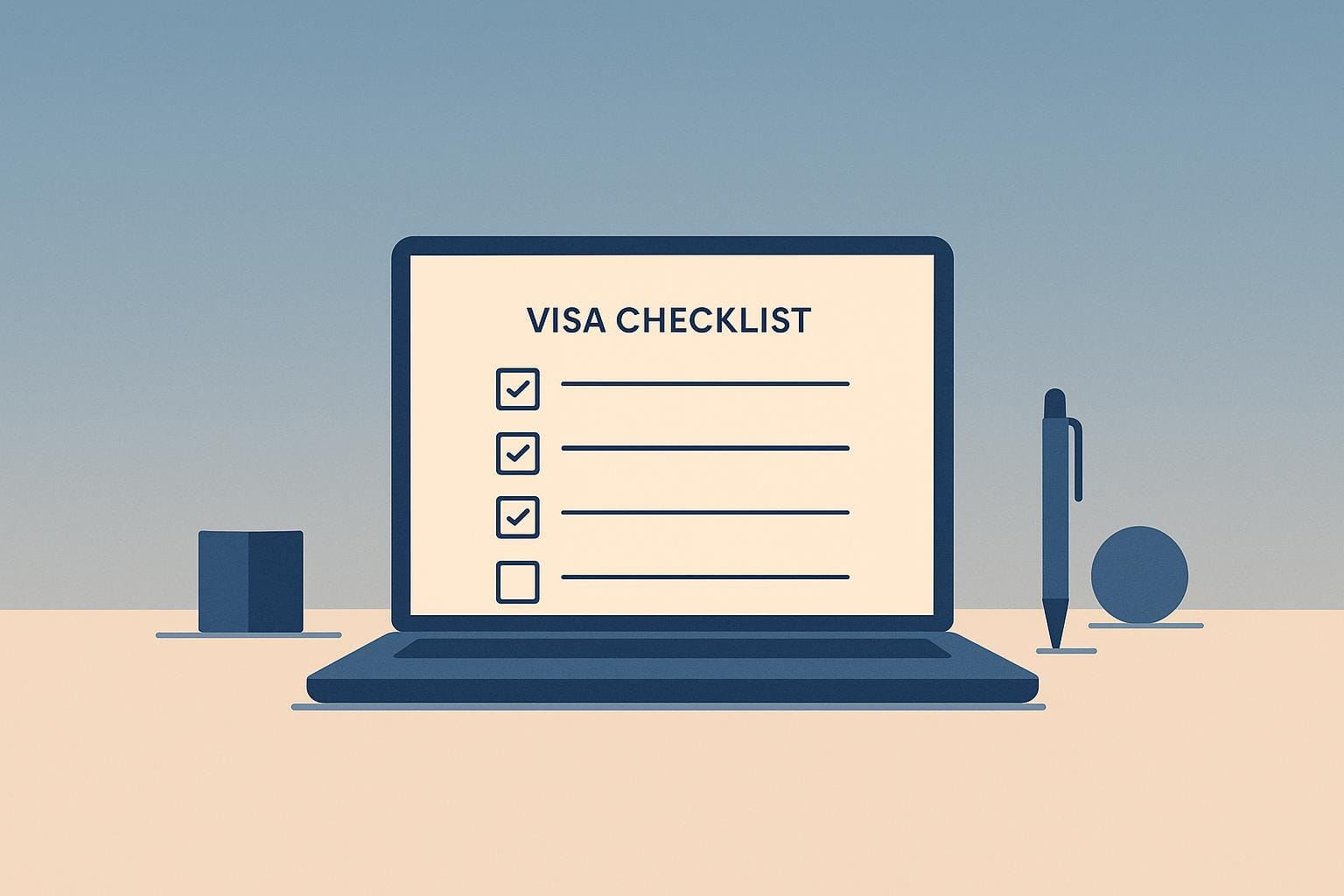The South Africa Critical Skills Visitor Visa is a quick and flexible solution for businesses needing foreign experts to handle urgent technical challenges. It allows professionals to work in South Africa for up to five years without requiring a local job offer. Key points:
- Who it's for: IT, engineering, and healthcare professionals listed on South Africa’s Critical Skills List.
- Purpose: Short-term assignments like IT system fixes, engineering repairs, or telecom crises.
- Processing time: 2–3 weeks with expert help or 6–8 weeks for independent applications.
- Requirements: Proof of expertise, employer support, valid passport, and financial means.
- Cost: R1,520 (application fee) + R1,550 (service fee), totalling around £150.
This visa is ideal for businesses managing global operations and facing urgent technical needs in South Africa. Proper documentation and compliance are crucial for a smooth application process.
Main Features and Purpose of the Visa
The Critical Skills Visitor Visa is specifically designed for short-term technical troubleshooting needs. It allows organisations to quickly bring in specialised professionals to handle urgent technical issues.
Designed for Short-Term Assignments
With a maximum validity of five years, this visa offers organisations the flexibility to deploy technical experts multiple times as needed. Unlike standard visitor permits, which often limit work-related activities, this visa allows qualified professionals to carry out specific technical tasks without requiring a local employment contract. Its structure is ideal for emergency interventions - enabling professionals to enter South Africa, complete their assignments, and return as necessary. This aligns with South Africa’s focus on prioritising critical skills, as outlined below.
Focused on Critical Skills
This visa is closely tied to South Africa’s government-approved Critical Skills List, which highlights high-demand sectors like engineering, information and communications technology (ICT), and science. For instance, South Africa has a pressing shortage of IT professionals, with roles such as Software Developers, ICT Systems Analysts, Network and Information Security Specialists, Applications Programmers, and Data Scientists prominently featured on the list. Examples include blockchain specialists working with South African IT firms or network security experts bolstering cybersecurity for telecommunications companies. Beyond IT, the government is also targeting talent in healthcare, tech, and engineering to support its national development goals.
Fast Processing for Emergency Needs
When time is of the essence, the visa’s streamlined application process becomes a key advantage. Applications supported by experts are usually processed within 2–3 weeks, while independent submissions may take 6–8 weeks. This quick turnaround ensures that organisations can deploy specialised professionals promptly to resolve critical technical issues, with proper preparation helping to minimise delays.
Eligibility Requirements
Meeting the eligibility criteria is a crucial step in ensuring your application for this visa is successful. Here's what you need to know.
Proof of Expertise in Critical Skills
Your occupation must align with South Africa's official Critical Skills List. If your qualifications were obtained outside South Africa, they must be evaluated by SAQA (South African Qualifications Authority). If necessary, provide certified translations by a sworn translator.
Additionally, you’ll need written confirmation from a recognised professional body, council, or board accredited by SAQA - or from a relevant government department - confirming your qualifications and post-qualification experience. For professions that require regulation, you may also need to submit proof of your application for a certificate of registration. It’s important to list your occupation or critical skill exactly as it appears on the Critical Skills List.
Required Documents
To strengthen your application, you’ll need to gather the following:
- Testimonials showcasing your technical accomplishments.
- A detailed CV outlining your relevant professional experience.
- A motivation letter explaining how your skills can contribute to South Africa.
- Proof of financial means to cover your expenses while in the country.
- A yellow fever vaccination certificate, if you are travelling from or through a yellow fever risk area.
Temporary and Purpose-Specific Nature
Your application must include documents that clearly define the purpose and duration of your assignment. To demonstrate your intent to leave South Africa after your visit, provide:
- Evidence of return travel, such as a confirmed return ticket or reservation proof.
- A letter of invitation from the South African organisation hosting your visit. This should include your name, passport number, and details about the purpose and duration of your stay.
- A reference letter from your employer in your home country, confirming your employment status and the business purpose of your assignment.
- A passport valid for at least 30 days beyond your planned departure date.
These documents highlight the urgency and technical nature of your assignment, underlining the visa's role in facilitating time-sensitive projects. Ensuring your paperwork is complete and accurate will enhance your chances of a quick approval.
Application Process and Document Checklist
The online application system is designed to simplify the process, allowing quick action during urgent situations. This system ensures that submissions are handled efficiently, enabling your team to respond promptly when challenges arise.
Step-by-Step Application Guide
All applications must be completed online - handwritten forms are not accepted by the Department of Home Affairs. To begin, visit the official VFS Global website, which manages visa facilitation services for South African missions.
- Complete the online form: Ensure every detail matches your supporting documents exactly.
- Schedule your appointment via VFS Global: Pay the R1,550 fee online using a debit card, credit card, or electronic transfer.
- Attend your appointment: Visit the designated VFS Global visa centre with all original documents and their copies.
- Track your application: Use the VFS Global online tracking system to monitor your application in real time. This feature helps you stay updated on the process and plan deployment timelines effectively.
Before scheduling your appointment, make sure all necessary documents are prepared and in order.
Complete Document Checklist
Your application must include the following mandatory documents:
- Passport: Ensure it remains valid for at least 30 days beyond your intended departure date.
- Medical and Radiological Reports: Provide current reports from approved medical practitioners.
- Police Clearance Certificates: These must be issued by the relevant authorities in every country where you’ve lived for 12 months or more after the age of 18. Certificates must be less than six months old at the time of submission.
- Marriage Certificate: Include this if applicable.
- Yellow Fever Vaccination Certificate: Required if travelling from a region at risk of yellow fever.
- Employer Undertakings: Submit a letter on company letterhead confirming responsibility for deportation costs and passport validity, while also outlining the temporary nature of the visit.
- Foreign Documents: Include certified translations and SAQA evaluations for any foreign documents.
Processing Times and Fees
Once your application is submitted, processing times vary depending on your location and specific circumstances. Applications from outside South Africa generally take 30–40 working days, while those submitted within the country may take 6–8 weeks.
The fees for a Critical Skills Visitor Visa include charges from both the Department of Home Affairs and VFS Global:
- DHA Application Fee: R1,520
- VFS Service Fee: R1,550
The total cost is approximately £150, based on current exchange rates. Note that VFS service fees are non-refundable once your application is submitted.
If you need to extend your visa, make sure to apply at least 60 days before your current permit expires.
Real-World Use Cases for Technical Troubleshooting Teams
The Critical Skills Visitor Visa plays a key role in addressing urgent technical challenges across industries. By simplifying the process of bringing in specialised professionals, it ensures businesses can quickly respond to critical situations where local expertise may fall short.
Here are some practical examples of how companies are using the visa to tackle technical issues.
IT and Network Emergency Support
When IT systems fail, the downtime can be costly. This visa allows businesses to bring in experts like Computer Network and Systems Engineers or ICT Security Specialists - both listed on South Africa's Critical Skills List. These professionals excel at managing intricate network setups, resolving system complexities, and strengthening cybersecurity defences. In cases of database failures or system crashes, Data Management Managers step in to restore database integrity and get operations back on track.
Engineering and Industrial Repairs
Industrial equipment breakdowns can halt production and disrupt operations. With the visa, companies can quickly access Industrial Engineers who evaluate the use of personnel, facilities, and materials to restore efficiency. Civil Engineers are also brought in for urgent infrastructure projects, particularly those tied to National Infrastructure Projects - a key focus of the visa programme. From fixing structural defects to resolving transportation or hydraulic system issues, these experts help minimise risks and restore functionality swiftly.
Telecommunications Crisis Management
Telecommunications outages demand immediate attention to re-establish connectivity. Electronics Engineers address issues like component failures, circuit malfunctions, or network disruptions. Electrical Engineering Technologists provide critical support by improving system performance during power or infrastructure emergencies. The visa's emphasis on strategic infrastructure projects further strengthens its role in managing telecom crises. Senior ICT professionals, such as Chief Information Officers, often oversee comprehensive response plans to ensure communication systems remain secure and operational.
These examples highlight the visa's importance in meeting urgent technical needs, enabling businesses to maintain continuity and address challenges effectively.
Compliance and Best Practices for Employers
Employers managing technical teams under the Critical Skills Visitor Visa in South Africa face stringent legal and operational responsibilities. These obligations extend well beyond the initial application process, making ongoing compliance a key priority for businesses.
Regulatory Compliance Guidelines
South African immigration law imposes specific requirements on employers who sponsor foreign nationals. According to Section 38 of the Immigration Act, employers must make a "good faith effort" to ensure that everyone working at their facilities is properly authorised for their roles. Failure to comply can result in fines, legal challenges, and operational disruptions.
Employers also shoulder significant financial responsibilities. They are required to provide a written undertaking accepting liability for deportation costs for both the employee and their dependent family members, should removal become necessary. Additionally, they must ensure the employee's passport remains valid for the entire duration of their stay.
Section 49 of the Immigration Act explicitly states that it is a criminal offence for foreign nationals to work without the correct visa or with an invalid visa type. This places the onus on employers to verify that all technical team members have the appropriate Critical Skills Visitor Visa before they begin work.
Compliance doesn’t stop at the hiring stage. Immigration policies can change, and employers must stay informed of any regulatory updates during the employee's tenure. What meets the requirements at the start of a deployment may need adjustments as rules evolve. Staying on top of these changes ensures technical teams can continue to operate effectively on critical, time-sensitive projects.
These legal requirements form the foundation for best practices in managing HR and mobility operations.
Best Practices for HR and Mobility Teams
Deploying technical troubleshooting teams successfully requires more than just meeting legal obligations. HR teams should adopt structured approaches to streamline processes and minimise risks. For instance, maintaining updated templates for all necessary undertakings and documentation ensures consistency across applications. Standardised employment contracts that clearly outline job roles, responsibilities, and compensation are also essential.
It’s crucial to confirm that each technical specialist’s qualifications align precisely with visa requirements. This should be backed by complete documentation, including proof of company registration and recruitment records.
To avoid costly mistakes, HR teams should implement tracking systems to monitor visa validity. Automated reminders for expiry dates and regular checks on employment status changes can help ensure timely reporting to Home Affairs. Post-visa compliance is as important as the initial application process. Employers must monitor visa renewal deadlines, verify changes in employment status, and report terminations promptly to avoid penalties.
Training HR staff on proper immigration file management is another critical step. This involves maintaining thorough records of visas, permits, employment contracts, and other relevant agreements throughout the deployment period. Consulting with local tax and legal experts can further ensure full compliance with South African regulations.
Streamlining these internal processes lays the groundwork for integrating advanced visa management tools.
Using Visa Management Tools
Managing multiple technical deployments at once can be complex, making advanced tracking and compliance systems invaluable. Visa management platforms like VisaDoc simplify these tasks by centralising visa information, automating compliance alerts, and keeping up with the latest regulatory requirements.
These tools are particularly helpful in technical troubleshooting scenarios where deployment timelines are tight. Automated document verification reduces delays, while compliance tracking features help HR teams navigate shifting regulations without missing critical deadlines.
VisaDoc, for example, integrates with HR systems to streamline visa tracking, reduce human error, and ensure compliance. Its automated notifications and centralised database provide a clear overview of all visa-related processes.
Investing in such tools not only reduces compliance risks but also speeds up deployment times and improves visibility across global mobility programmes. Given the financial and legal stakes of non-compliance, these platforms are a practical solution for companies relying on international technical expertise.
Conclusion: Using the Critical Skills Visitor Visa for Business Success
The South Africa Critical Skills Visitor Visa is a practical tool designed to address urgent technical challenges. By directly supporting the country's National Infrastructure Project and Strategic Infrastructure Projects, this visa provides a government-backed route to secure critical expertise exactly when it's needed most.
For businesses managing global technical operations, the visa aligns with South Africa's economic objectives. Its points-based system focuses on sectors like technology, healthcare, and engineering, simplifying the recruitment of specialised skills necessary for tackling complex technical issues. This approach not only resolves immediate challenges but also contributes to the stability of longer-term projects.
Managing visa applications effectively is essential to avoid operational setbacks. With historically high rejection rates, meticulous preparation and adherence to compliance requirements are crucial. Companies that prioritise thorough application processes and robust compliance systems gain a competitive edge. Beyond the cost of visa fees, non-compliance can lead to significant consequences, including operational delays, reduced productivity, and strained client relationships when technical teams can't be deployed on time.
By approaching visa management strategically, businesses can turn regulatory requirements into operational advantages. Platforms like VisaDoc simplify this process by offering automated compliance tracking, centralised documentation, and timely updates on regulatory changes. This allows technical teams to focus on solving critical issues rather than being bogged down by administrative hurdles.
"It's really essential that you have mobility to be effective. Otherwise, you look like a collection of distinct and separate groups of employees and customers that aren't well connected or integrated or understood."
- Larry Neal, Cisive CEO
This quote underscores the importance of seamless mobility in driving overall business efficiency.
The visa’s 90-day framework, extendable under specific conditions, provides the flexibility needed to address emergencies like IT system failures, engineering crises, or telecommunications breakdowns. It supports both immediate problem-solving and the subsequent transfer of knowledge, ensuring issues are resolved comprehensively.
Success with this visa requires treating compliance as an ongoing process rather than a one-off task. Proper documentation, timely renewals, and automated tracking systems ensure that companies remain ready to respond quickly to technical emergencies. This level of preparedness can be the deciding factor in whether critical projects progress smoothly or encounter delays.
For multinational companies, the Critical Skills Visitor Visa offers more than just entry into South Africa. It opens the door to the country’s growing technology and infrastructure sectors while maintaining the flexibility needed for global technical operations. This ensures technical teams can deploy quickly, meet compliance requirements, and keep vital projects on track.
FAQs
Which professions qualify for the South Africa Critical Skills Visitor Visa, and how can I check if my job is included on the Critical Skills List?
South Africa Critical Skills Visitor Visa
The South Africa Critical Skills Visitor Visa is tailored for professionals working in fields that play a key role in meeting the country's economic and technical demands. Some of the professions often eligible under this visa include:
- Engineers (civil, electrical, mechanical)
- Healthcare professionals (such as doctors, nurses, and specialists)
- IT professionals
- Experts in renewable energy
These professions are part of the Critical Skills List, which is maintained and updated by the Department of Home Affairs.
If you’re unsure whether your profession qualifies, you can check the latest version of the Critical Skills List on the Department of Home Affairs website. Since the list is updated regularly, it’s a good idea to revisit it periodically - new professions may be added over time, giving more professionals the opportunity to apply.
What is the difference between applying for the South Africa Critical Skills Visitor Visa independently and using professional assistance, and what are the benefits of each option?
Applying for the South Africa Critical Skills Visitor Visa
When it comes to applying for the South Africa Critical Skills Visitor Visa, your approach can make a big difference in terms of time and ease. You can either handle the process yourself or enlist professional help, each option with its own pros and cons.
Applying independently means you won’t have to pay consultancy fees, and you’ll maintain full control over the entire process. However, this route often takes longer - typically around 6 to 8 weeks. This is mainly because you’ll need to manage the intricate documentation and compliance requirements on your own, which can be time-consuming and tricky to navigate.
On the other hand, using professional assistance can speed things up considerably, often reducing the processing time to just 2 to 3 weeks. Immigration experts ensure your paperwork is correctly prepared, submitted on time, and aligned with the latest regulations. This approach minimises the risk of errors, delays, or even rejections. For businesses or teams that need urgent access to tackle critical technical issues, this can be a game-changer.
If you have the time and experience, applying on your own could work well. But for those under tight deadlines or looking for a smoother experience, professional assistance offers tailored support and greater peace of mind.
What are the employer responsibilities when sponsoring foreign experts on a South Africa Critical Skills Visitor Visa, and how can compliance with immigration laws be maintained?
Employers who sponsor foreign professionals on a South Africa Critical Skills Visitor Visa have several responsibilities to ensure compliance. First and foremost, the visa holder must work strictly within the designated critical skill area. If they wish to switch employers, they must obtain a new visa before doing so. Employers are also required to keep precise employment records and ensure that visa holders adhere to South African laws, including tax obligations and any applicable industry-specific regulations. Furthermore, certain businesses must meet the requirement that at least 60% of their workforce comprises South African citizens or permanent residents.
To stay compliant, employers should take proactive measures, such as conducting regular audits of their internal procedures, providing immigration regulation training for HR teams, and keeping track of visa expiry dates to handle renewals promptly. Seeking advice from legal experts in immigration law can also be a smart move to navigate the complexities and minimise the risk of non-compliance.
Related Blog Posts
- Supporting Your Employees Through the Visa Process: A Travel Manager’s Guide
- Visa Expiration & Renewal Management: Preventing Last-Minute Travel Disruptions
- Contract Negotiation Trips to South Korea: Short-Term Business Visa Application Strategies
- Chile's Tech Business Visa: 30-Day Option for Software Implementation Teams




